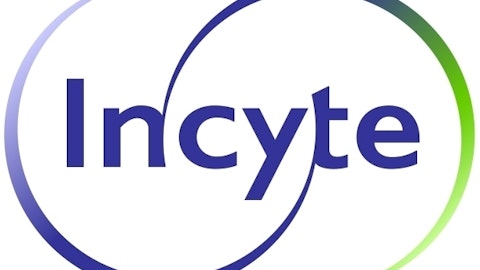 At StreetAuthority, we often look at where Washington’s most powerful men are putting their money. Recently, we learned what not to do from Barack Obama’s portfolio, picked up some tips on diversification from Mitt Romney and revealed Ron Paul’s affinity for gold and silver miners.
At StreetAuthority, we often look at where Washington’s most powerful men are putting their money. Recently, we learned what not to do from Barack Obama’s portfolio, picked up some tips on diversification from Mitt Romney and revealed Ron Paul’s affinity for gold and silver miners.
But none of these men have the potential clout of a woman who may soon become the world’s most powerful economic force.
If you’re thinking of Hillary Clinton, Marissa Mayer or Angela Merkel, you’re wrong.
As the first chairwoman of the Federal Reserve, Janet Yellen would have a deciding role in determining the monetary policy of the world’s largest economy and her portfolio holds some interesting stocks.
I know, Yellen has yet to be nominated to be the next Fed chief, let alone approved by Congress. Do I know something you don’t? I don’t have a crystal ball into the president’s next move but there are several reasons that lead me to believe Yellen should be the odds-on favorite.

Beyond her substantial experience and qualifications for the post, Yellen may be the nominee for a more controversial reason. Never has the Federal Reserve been led by a woman. As the nation’s first black president, Obama is unlikely to overlook the social implications of nominating Yellen.
Other than Yellen, only former Treasury Secretary Larry Summers is in the running for the Fed chair. Summers has a strong background in crisis management, but he’s also closely connected to Wall Street, having served as a consultant for Citigroup Inc (NYSE:C) and other large firms. His role in the 1999 repeal of the Glass-Steagall Act, which really allowed the banks to become “too big to fail,” makes him a poor choice to oversee key provisions of Dodd-Frank regulation. Obama recently defended Summers’ reputation, but I think this is just a front to keep from showing bias toward Yellen as the eventual pick.
Yellen has taught at Harvard University and the University of California at Berkley. She was the president of the San Francisco Fed from 2004 until 2010, when Obama nominated her to the Federal Reserve Board of Governors.
Most of her assets are held in a living trust held jointly with her husband, the Nobel Prize-winning economist George Akerlof. (The fact that assets are held in a trust means little other than that the estate will not go through probate to heirs.) Of Yellen’s estimated net worth of $3.5 million to $7.5 million, the largest portion is held in a diversified mix of Fidelity and Vanguard funds. She also has a considerable amount in Berkley’s defined contribution program along with retirement benefits she is currently receiving.
Yellen’s Top Stock Picks
Most interesting in the most recent financial disclosure is her holding of individual stocks. While Yellen holds an extremely large and diversified portfolio through funds, she holds direct equity positions in fewer than 10 individual companies. Her individual holdings are an odd mix of energy, industrials, consumer discretionary, technology and defense. Yellen’s portfolio is also heavily weighted for a cash return, with her three largest holdings paying an average 3.5% dividend yield.
Her largest holding is up to $100,000 in shares of ConocoPhillips (NYSE:COP), the world’s largest exploration and production company, with a market cap of $80 billion. Lately, investors have feared that ConocoPhillips (NYSE:COP) will have a tough time paying for its strong 4.1% dividend from cash flow as the company increases its capital expenditures for Canadian heavy oil and offshore projects. These large projects should start adding significantly to production and requiring less capital spending after 2014, giving the company a huge boost to cash flow.
 | ||
| Wikipedia/Federal Reserve | ||
| Will Janet Yellen become the next chairman of the Federal Reserve? |
Yellen’s next two largest holdings are in the $53 billion chemicals maker E I Du Pont De Nemours And Co (NYSE:DD) and the $187 billion pharmaceutical behemoth Pfizer Inc. (NYSE:PFE). Her share in the two companies is estimated at upward of $50,000 each. E I Du Pont De Nemours And Co (NYSE:DD)’s management recently announced its intent for a full or partial sale of the performance chemicals division. That division saw sales decline 7.8% last year (compared with a much smaller decline of 3% in overall sales), so management may be trying to cut a weakening division before it gets any worse.
Pfizer Inc. (NYSE:PFE) has been in a tough spot lately as generic drugs erode sales for some of its older blockbuster drugs like Lipitor, Xalatan and Detrol. The company said last month that it would separate into three internal business segments: mature drugs, drugs with long-term patents, and vaccines, oncology agents and consumer health products. While the separation could give investors more transparency, it is unlikely to boost profitability. Regardless, Pfizer Inc. (NYSE:PFE) is considered best in class for the breadth and depth of products, and the company has seen sales grow at a compound annual rate of 4% over the past five years, more than enough to support the 3.4% dividend yield.
Yellen also holds smaller stakes (up to $15,000 each) in specialty chemicals manufacturer Cytec Industries Inc (NYSE:CYT), digital TV distributor DirecTV (NASDAQ:DTV), defense contractor Raytheon Company (NYSE:RTN) and business electronics provider NCR Corporation (NYSE:NCR). Her position in Raytheon is probably the most controversial, given its ties to defense spending, but the stock pays a 2.9% dividend and has been a solid performer over the past five years.
A weighted average of the seven stocks has easily beaten a portfolio of stocks in the S&P 500 since the market trough, with runaway leaders like the 639% return on Cytec Industries Inc (NYSE:CYT) and the 455% return on NCR Corporation (NYSE:NCR). Only Raytheon Company (NYSE:RTN) underperformed the general market, with a 159% return compared with 168% for the S&P 500.

Risks to Consider: Yellen’s financial disclosure offers an interesting look into her investments but does not show why she chose individual positions. As an economist, she may be betting more on the future of the particular industries rather than the companies themselves. Investors need to develop their own outlook for the individual companies and industries in their portfolio.
Action to Take –> I use a similar strategy in my own portfolio, a diversified mix of funds with smaller positions in individual picks. This so-called core-satellite strategy is a popular and effective way to get market returns from the majority of your portfolio while still benefiting from the success of a few individual companies.
P.S. — You don’t have to be the heir apparent to Ben Bernanke to figure out which sectors of the economy are poised to do well in the coming years — and which companies in those sectors are solid enough stocks to buy, forget about and hold “Forever.” To learn more about these stocks — including some of their names and ticker symbols — click here.
– Joseph Hogue
Warren Buffett’s Top 5 Stocks
Buffett’s firm, Berkshire Hathaway, holds dozens of stocks. But these five make up 75% of its portfolio… worth $65 billion. Click here to get Buffett’s top 5 stocks plus his 16 latest buys, FREE.





